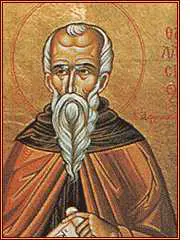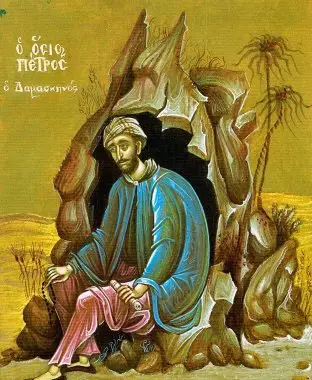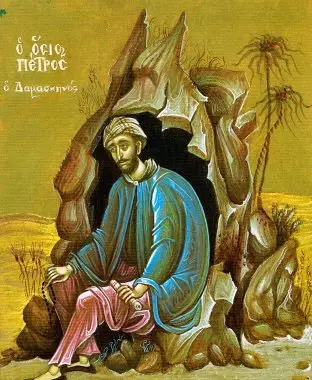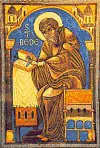Whenever a person even slightly illumined reads the Scriptures or sings psalms he finds in them matter for contemplation and theology, one text supporting another. But he whose intellect is still unenlightened thinks that the Holy Scriptures are contradictory. Yet there is no contradiction in the Holy Scriptures: God forbid that there should be. For some texts are confirmed by others, while some were written with reference to a particular time or a particular person.
Thus every word of Scripture is beyond reproach. The appearance of contradiction is due to our ignorance. We ought not to find fault with the Scriptures, but to the limit of our capacity we should attend to them as they are, and not as we would like them to be, after the manner of the Greeks and Jews. For the Greeks and Jews refused to admit that they did not understand, but out of conceit and self- satisfaction they found fault with the Scriptures and with the natural order of things, and interpreted them as they saw fit and not according to the will of God. As a result they were led into delusion and gave themselves over to every kind of evil.
The person who searches for the meaning of the Scriptures will not put forward his own opinion, bad or good; but, as St Basil the Great and St John Chrysostom have said, he will take as his teacher, not the learning of this world, but Holy Scripture itself. Then if his heart is pure and God puts something unpremeditated into it, he will accept it, providing he can find confirmation for it in the Scriptures, as St Antony the Great says. For St Isaac says that the thoughts that enter spontaneously and without premeditation into the intellects of those pursuing a life of stillness are to be accepted; but that to investigate and then to draw one’s own conclusions is an act of self-will and results in material knowledge.
This is especially the case if a person does not approach the Scriptures through the door of humility but, as St John Chrysostom says, climbs up some other way, like a thief (cf. John 10:1), and forces them to accord with his allegorizing. For no one is more foolish than he who forces the meaning of the Scriptures or finds fault with them so as to demonstrate his own knowledge-or, rather, his own ignorance. What kind of knowledge can result from adapting the meaning of the Scriptures to suit one’s own likes and from daring to alter their words? The true sage is he who regards the text as authoritative and discovers, through the wisdom of the Spirit, the hidden mysteries to which the divine Scriptures bear witness.
The three great luminaries, St Basil the Great, St Gregory the Theologian and St John Chrysostom, are outstanding examples of this: they base themselves either on the particular text they are considering or on some other passage of Scripture. Thus no one can contradict them, for they do not adduce external support for what they say, so that it might be claimed that it was merely their own opinion, but refer directly to the text under discussion or to some other scriptural passage that sheds light on it. And in this they are right; for what they understand and expound comes from the Holy Spirit, of whose inspiration they have been found worthy.
No one, therefore, should do or mentally assent to anything if its integrity is in doubt and cannot be attested from Scripture. For what is the point of rejecting something whose integrity Scripture clearly attests as being in accordance with God’s will, in order to do something else, whether good or not? Only passion could provoke such behavior.
— St. Peter of Damascus, The Philokalia (vol. 3), “A Treasury of Divine Knowledge”





